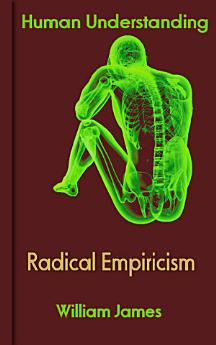Radical Empiricism: Human Understanding
O ovoj e-knjizi
‘Thoughts’ and ‘things’ are names for two sorts of object, which common sense will always find contrasted and will always practically oppose to each other. Philosophy, reflecting on the contrast, has varied in the past in her explanations of it, and may be expected to vary in the future. At first, ‘spirit and matter,’ ‘soul and body,’ stood for a pair of equipollent substances quite on a par in weight and interest. But one day Kant undermined the soul and brought in the transcendental ego, and ever since then the bipolar relation has been very much off its balance. The transcendental ego seems nowadays in rationalist quarters to stand for everything, in empiricist quarters for almost nothing. In the hands of such writers as Schuppe, Rehmke, Natorp, Münsterberg—at any rate in his earlier writings, Schubert-Soldern and others, the spiritual principle attenuates itself to a thoroughly ghostly condition, being only a name for the fact that the ‘content’ of experience is known. It loses personal form and activity—these passing over to the content—and becomes a bare Bewusstheit or Bewusstsein überhaupt, of which in its own right absolutely nothing can be said.
I believe that ‘consciousness,’ when once it has evaporated to this estate of pure diaphaneity, is on the point of disappearing altogether. It is the name of a nonentity, and has no right to a place among first principles. Those who still cling to it are clinging to a mere echo, the faint rumor left behind by the disappearing ‘soul’ upon the air of philosophy. During the past year, I have read a number of articles whose authors seemed just on the point of abandoning the notion of consciousness,[3] and substituting for it that of an absolute experience not due to two factors. But they were not quite radical enough, not quite daring enough in their negations. For twenty years past I have mistrusted ‘consciousness’ as an entity; for seven or eight years past I have suggested its non-existence to my students, and tried to give them its pragmatic equivalent in realities of experience. It seems to me that the hour is ripe for it to be openly and universally discarded.
Ocene i recenzije
O autoru
William James (January 11, 1842 – August 26, 1910) was an American philosopher and psychologist who was also trained as a physician. The first educator to offer a psychology course in the United States, James was one of the leading thinkers of the late nineteenth century and is believed by many to be one of the most influential philosophers the United States has ever produced, while others have labelled him the "Father of American psychology". Along with Charles Sanders Peirce and John Dewey, he is considered to be one of the major figures associated with the philosophical school known as pragmatism, and is also cited as one of the founders of functional psychology. A Review of General Psychology survey, published in 2002, ranked James as the 14th most cited psychologist of the 20th century.












